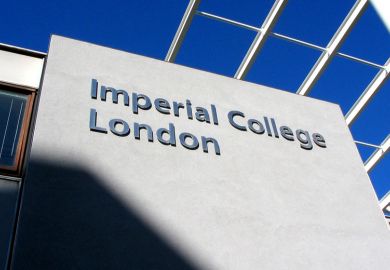点击阅读英文原文
专家警告称,限制被认为危害英国国家安全领域与中国学术交流的措施,表明“意识形态”和“冷战反共情绪”正在塑造英国的科学政策。
外界预计英国政府将对与国家安全相关领域的海外学者和学生制定新的安全审查规定,其限制措施可能被引入人工智能、数学、物理学、化学和某些工程学科。
《泰晤士报》报道称,该规定或使成千上万的中国研究人员被禁止进入英国,其目的是防止知识产权被盗、并消除对英中合作研究被用于军事目的的担忧。
外交事务委员会保守党主席汤姆·图根哈特(Tom Tugendhat)告诉泰晤士高等教育,对英中研究合作的重新评估“迟到已久”,而且一些大学的合作“敲响了警钟”。
这位议员说:“我们需要对中国大学和军事企业的背景有更深入的了解,然后我们才能开始划定可接受的合作的界线。”
但是,牛津大学(University of Oxford)高等教育教授西蒙·马金森(Simon Marginson)表示,鉴于“(英国)所有强势研究型大学都与军事或安全相关的研究有联系”,禁止英国大学与“与军方联系的”中国大学合作将是不合理的限制。
他补充说,对与中国共产党有关联的学者的类似禁令同样太严格了。马金森教授解释说:“要求中国的大学或科学家以及出国留学的中国学生,与‘共产党’没有关系,就像在说‘与政府没有关系’,因为它是一党制国家。”
“坦率地说,在与东亚人民打交道或信任他们之前,要求他们‘像我们一样’,这是新帝国主义的自大。这不仅是在说‘我们的体系优于你们的体系’,也是在说‘只有我们的体系是合法或可能的’。”
帝国理工学院(Imperial College London)是因与中国企业关联而受到审查的大学之一。该校向泰晤士高等教育表示,其合作侧重于“基础科学研究”,并且它与英国政府机构密切合作。
帝国理工学院的一位发言人表示:“我们的研究成果在公共领域中公开发布,并定期在领先的国际期刊上发表,对科学、创新和英国的全球影响力都是有益的。科学是一项全球性的努力,我们为与全世界学术界和业界的同行合作而感到自豪。”
马金森教授说,英国的最新对华政策可能反映了“冷战时期的反共本能仍然埋在西方人心中”。
他说:“将中国的一切污名化为一党制庞大机构的一部分,这反映出幼稚的政治分析水平,以及幼儿园水平的刻板印象的过度发展。它透露的迹象显示意识形态是如何主导这一讨论的。”
伦敦玛丽皇后大学(Queen Mary University of London)国际政治准教授琼斯·李说,他担心英国“正在进入一个时代,让所有中国的研究者和学生(不论动机如何),都在英国受到越来越多的怀疑(通常是毫无根据的)和敌对情绪,复制在美国已经发生的转变”。
琼斯博士补充说:“无论一个人对这种政策转向的看法如何,抨击大学遵循前任政府的政策显然是有问题的。”琼斯博士表示“英国前任首相戴维·卡梅伦2015年还在宣传英国与中国的‘黄金时代’”。
琼斯博士继续说:“是政府的政策驱使英国大学依赖中国生源,无论是在英国学习还是在位于中国的分校学习,而科研经费不足则鼓励科学家与中国同行进行合作。”
“如果政府真的担心英国大学对中国学生和研究人员的依赖以及与他们的关系,政府应该为高校提供足够资金,并对与中国进行的可接受和不可接受的接触制定明确的规定。”
jack.grove@timeshighereducation.com
本文由Liu Jing为泰晤士高等教育翻译。
后记
Print headline: UK rules on China ‘will hit science’




